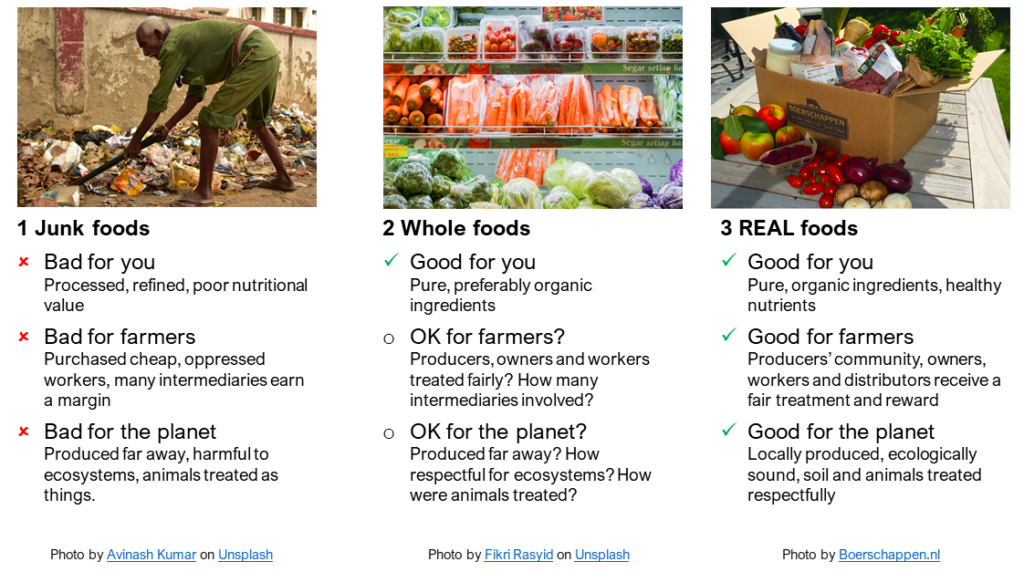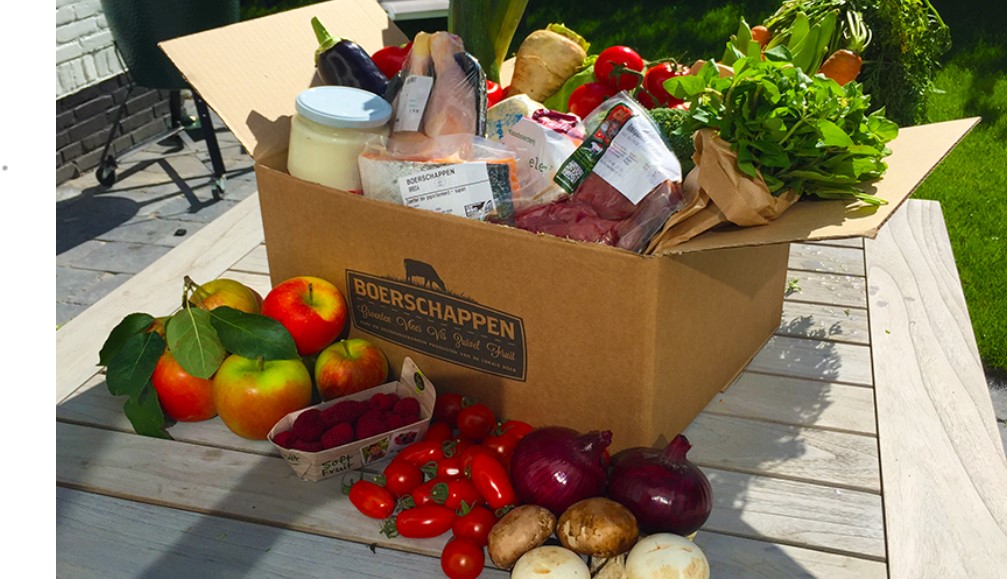What do I mean? Very simple: I wish for you to select REAL food above Whole food and first and foremost avoid Junk food 🙏.
I realized that in my past blog posts I have mostly written about whole, plant-based food. But I missed making a point about the kinds of ingredients you can buy.
1 Junk food – save for last
Starting with the last category: I admit I buy some of that. Processed food from the supermarket I mean. Far less, though, than many years ago when we had young children. Strangely enough, back then we didn’t think much about the quality of the food we served to our family. Sorry about this, kids! We compromised your health because of speed and convenience. Never late to start doing the right thing, though!
So, if you haven’t already done that, please take a look at the ingredients you put into your body. Simply put; we ingest a lot of junk when we buy processed food. Junk is used to make bad quality foodstuff taste, smell or look better. Junk is used to make food last longer on your shelf or fridge. Junk is used because mass-produced, refined ingredients result into cheaper end products. Junk is used to transport and package your food. Hence: junk you end up eating.
2 Whole food – that’s OK
The second category, whole foods are foods that have not been processed, refined or had ingredients added to them. All the recipes I share with you are mostly based on whole food. And as mentioned almost all of them are plant-based. But today’s discussion goes beyond promoting a plant-based regimen.
3 REAL food – please choose those!
The definition of The REAL Food Challenge of “Real Food” is: “Broadly, Real Food truly nourishes everyone: producers, consumers, communities, and the earth.”
Another way to put it, REAL stands for: faiR trade, Ecologically sound, humAne, Local. I’m sure we can find a better mnemonic!
A personal example. We recently started to purchase some of our groceries from local farmers. This thanks to a company called Boerschappen, which roughly translates into “Growceries” or “Farmershopping”. They purchase foodstuff, in our case mostly vegetables and fruit, from local farmers and sell that online direct to the consumer.
This way they:
- dramatically shorten the time between harvesting and consuming, resulting in fresh and delicious produce on our plate
- reduce logistics and packaging costs, therefore having a positive impact on the environment
- and they can make sure farmers get more money for their efforts.
There are of course other initiatives for you to choose from. Look around and surely you’ll find suitable solutions. For instance a French company called La Ruche Qui Dit Oui is present in a growing number of European countries, including the Benelux (Boeren en Buren), and Germany (Marktschwärmer.)
To make things simpler here’s a summary as simple as 1-2-3 😊:

Agree? Disagree? What do you think?

[…] piece of advice: check the label before you buy tofu. Prefer REAL tofu, made from local (in my case European) soy beans above tofu that has made many kilometers […]
[…] Key #1: Eat REAL Food […]